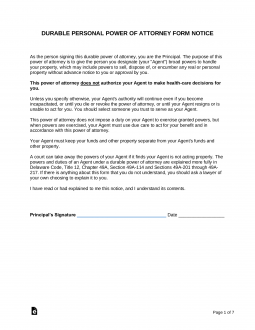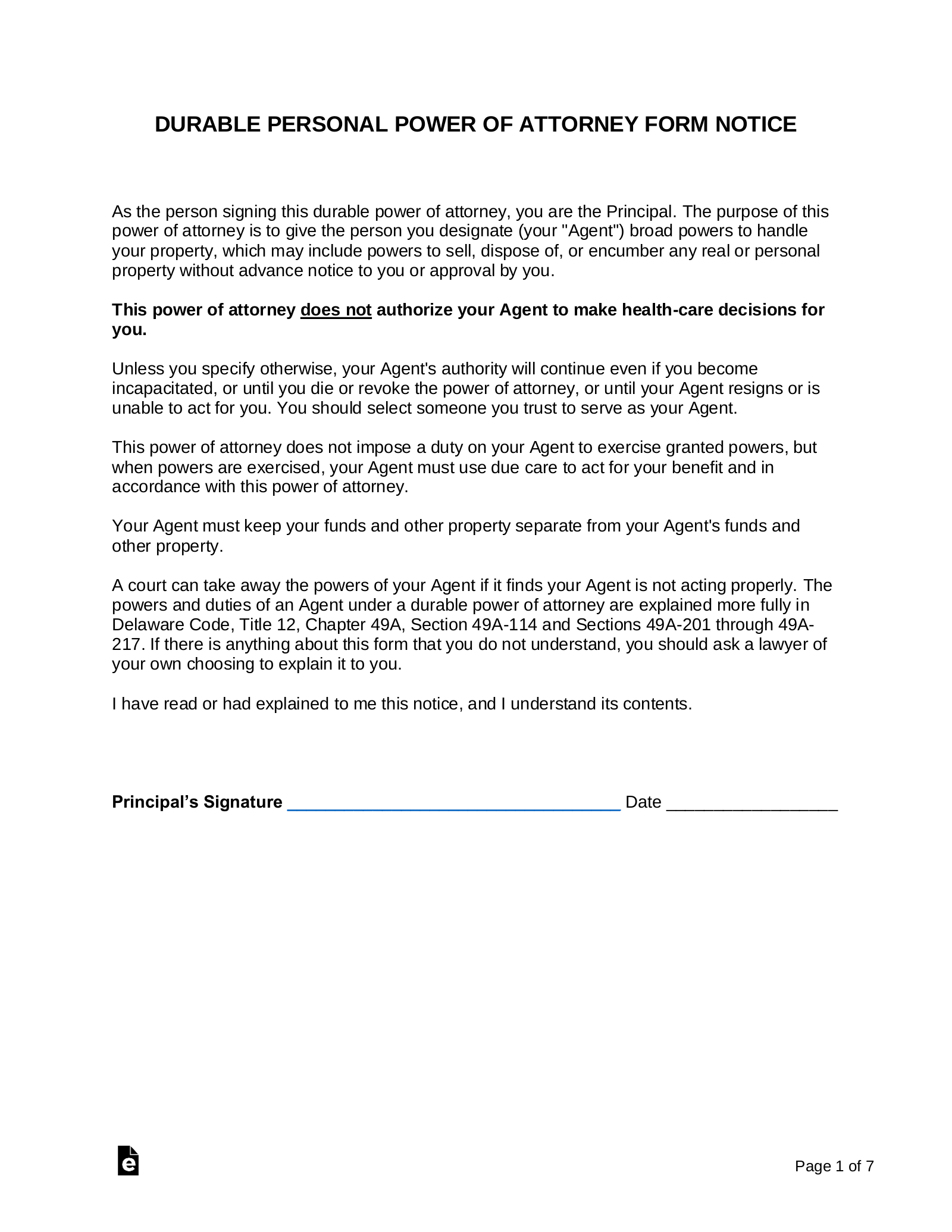Updated August 08, 2023
A Delaware power of attorney allows individuals to create a designation that transfers specific powers and authority from one person to another. The person transferring their authority (“principal”) will likely want to choose an agent that is a trusted individual such as their spouse or a family member to act as the agent. Once the form is signed, there is no government office required to record the power of attorney and the agent may begin signing and acting on behalf of the principal.
By Type (9) |
 Advance Health Care Directive – Allows a person to choose a friend or relative to make healthcare decisions for them (medical power of attorney) and choose end-of-life treatment preferences (living will). Advance Health Care Directive – Allows a person to choose a friend or relative to make healthcare decisions for them (medical power of attorney) and choose end-of-life treatment preferences (living will).
Download: PDF, MS Word, OpenDocument Signing Requirements (§ 2503(b)(1)): Two (2) witnesses. |
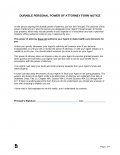 Durable (Statutory) Power of Attorney – This type of power of attorney continues in effect, even after a person can no longer make decisions for themselves.Download: PDF, MS Word, OpenDocument Durable (Statutory) Power of Attorney – This type of power of attorney continues in effect, even after a person can no longer make decisions for themselves.Download: PDF, MS Word, OpenDocument
Signing Requirements (§ 49A-105): One (1) witness and a notary public. |
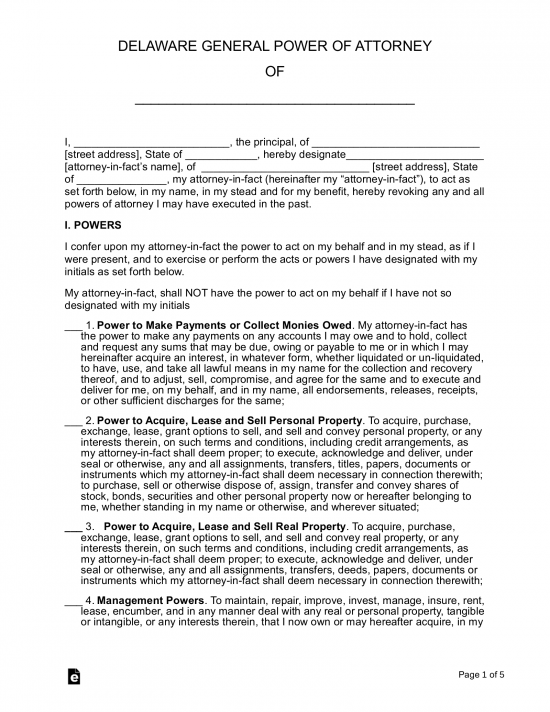 General (Financial) Power of Attorney – This form can be used in the event the principal is going to be away for a period of time but expects to return. Non-durable. General (Financial) Power of Attorney – This form can be used in the event the principal is going to be away for a period of time but expects to return. Non-durable.
Download: PDF, MS Word, OpenDocument Signing Requirements (§ 49A-105): One (1) witness and a notary public. |
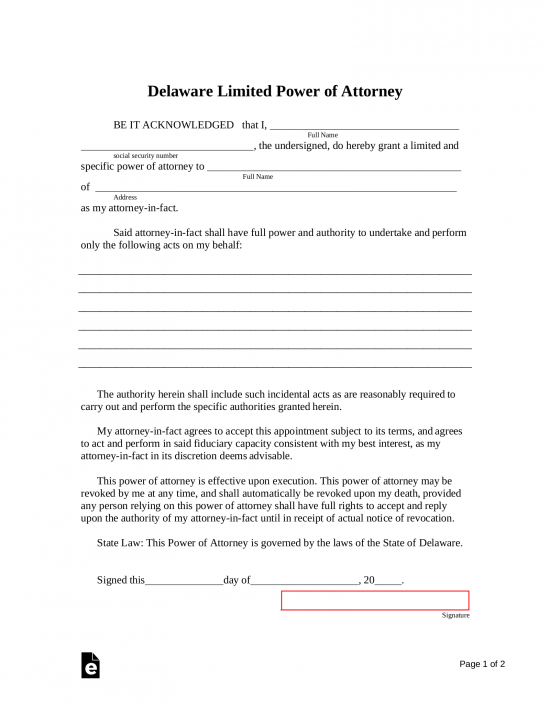 Limited Power of Attorney – A principal can use this form to appoint an agent to stand in for him or her for a specific transaction or limited circumstance. Limited Power of Attorney – A principal can use this form to appoint an agent to stand in for him or her for a specific transaction or limited circumstance.
Download: PDF, MS Word, OpenDocument Signing Requirements (§ 49A-105): One (1) witness and a notary public. |
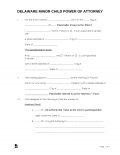 Minor (Child) Power of Attorney – This form allows parents to designate someone they trust to be in charge of their children for a limited period of time. Minor (Child) Power of Attorney – This form allows parents to designate someone they trust to be in charge of their children for a limited period of time.
Signing Requirements: Clerk of the court of a notary public. |
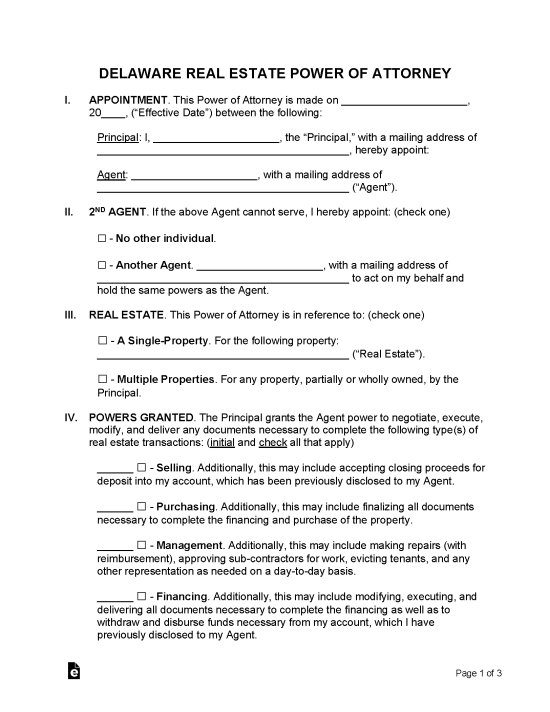 Real Estate Power of Attorney – To elect someone else to handle real property to your benefit for a sale, purchase, or day-to-day maintenance. Real Estate Power of Attorney – To elect someone else to handle real property to your benefit for a sale, purchase, or day-to-day maintenance.
Download: PDF, MS Word, OpenDocument Signing Requirements (§ 49A-105): One (1) witness and a notary public. |
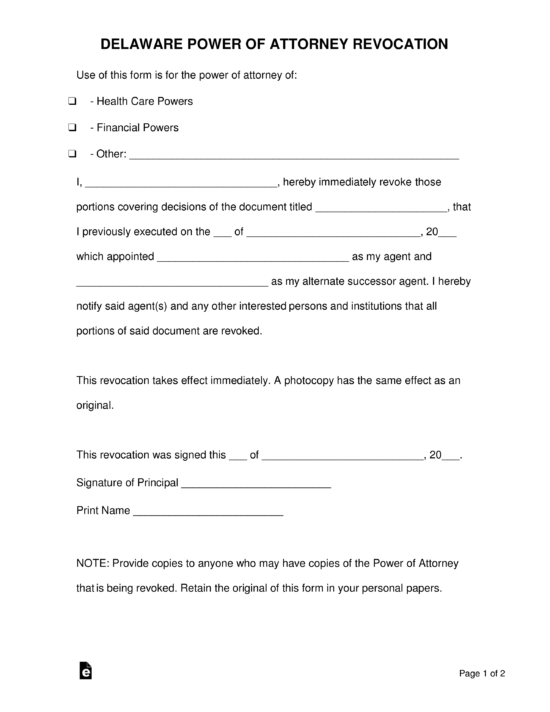 Revocation of Power of Attorney – This form revokes a previously executed POA. A third party must know of the revocation in order to be liable on any reliance on the POA. Revocation of Power of Attorney – This form revokes a previously executed POA. A third party must know of the revocation in order to be liable on any reliance on the POA.
Download: PDF, MS Word, OpenDocument Signing Requirements: No laws but is recommended to be signed in the presence of a notary public. |
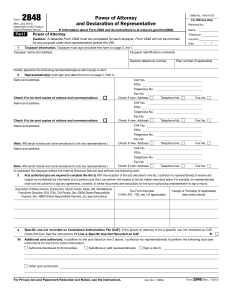 Tax Power of Attorney (Form 2848) – A person can appoint someone to represent them with the state tax authorities. Tax Power of Attorney (Form 2848) – A person can appoint someone to represent them with the state tax authorities.
Download: PDF Signing Requirements: Principal and the representative. |
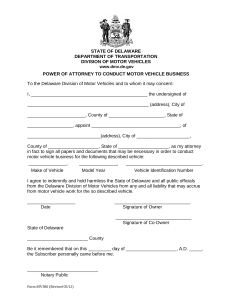 Vehicle Power of Attorney (MV-386) – A principal can assign an agent to represent them with the Division of Motor Vehicles. Vehicle Power of Attorney (MV-386) – A principal can assign an agent to represent them with the Division of Motor Vehicles.
Download: PDF, MS Word, OpenDocument Signing Requirements: Notary public. |

